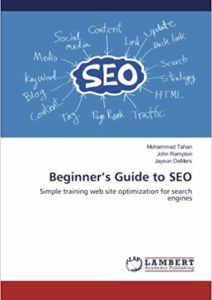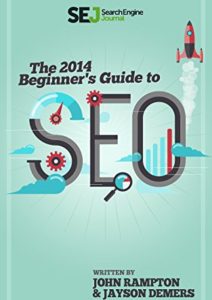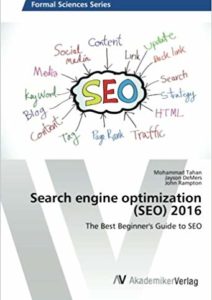To someone getting into it for the first time, SEO often seems like a complicated, confusing world. In addition to ensuring that you’re targeting the right keywords and optimally structuring your site for proper indexing and navigation, you have to build inbound links, get involved on social media, and maintain positive relationships with your customers.
For a large corporation with a massive budget, this isn’t a major worry. If you throw enough money at a problem, it eventually goes away, and most large corporations have recruited massive teams of search engine optimization professionals to ensure they remain at the top of the search rankings. But for the new entrepreneur or small business owner, budgets are restrictive, and it’s almost impossible to cover everything you’d like to be doing—assuming you know what you’re doing to begin with.
Fortunately, SEO can be a beneficial strategy no matter how much time or effort you have to put into it. Obviously, the more resources you have to dedicate to SEO, the better it can pay off, but as long as you’re performing the fundamental tasks, you can act in a way that attracts more organic traffic over time. The key is to understand the hierarchy of SEO; in other words, which efforts are most important.
To illustrate the SEO hierarchy, let’s imagine building a house in the middle of nowhere.
The Initial Assessment: Fixing Your Website with Onsite Optimization
You start with nothing. You have a plot of land in the middle of nowhere, and you’re ready to build. But before you start digging, you have to make sure your land is able to support your structure. In this case, your website needs to be able to support your SEO efforts. Without a stable, solid website, your SEO campaign won’t be nearly as effective.
Of course, your website should be optimized to convert your visitors—otherwise, your incoming traffic will simply bounce—but that’s not exactly what I’m talking about here. To make sure your website supports your SEO strategy, you need to make one-time structural changes to it. There are dozens of small ranking factors that can be adjusted on your site immediately. For example, Google favors sites with a visible blog, clear contact information, a logical and clear sitemap, many indexed pages, HTTPS encryption, fast site speed, quality title tags and meta tags, static URLs, and so on.
This is the first and most important stage of the hierarchy because it is (usually) a one-time fix, and without it, you could be struggling even with a strong recurring strategy. Make the investment to get your website up to Google’s standards; this should only be done with the help of a professional.
The Foundation: Content Marketing
Once your onsite optimization is in order, you can start building with the core foundation of your strategy: your content marketing campaign. Your content marketing strategy is important for three reasons: first, it does a lot of work on its own to improve your rankings by adding keyword-rich quality material to your site. Second, it feeds the rest of your campaign by giving you deep links and attractive, shareable content to post on external sites. Finally, it’s an important feature that can keep your visitors on your site once they find you.
If you only invest in one facet of a traditional SEO campaign, make sure it’s content marketing. Content marketing is, in some ways, the fuel that makes the rest of your content run, and without it, you’ll have a hard time ranking for any keyword. Good content is a baseline requirement for any SEO campaign, and great content will improve your reputation, increase your conversion rate, and keep your customers loyal. It’s up to you how much you want to invest in your content strategy, but it needs to be a part of your SEO campaign whether you pay for content services or write regular articles yourself.
The Roads: Link Building
Because link building happens on external sites, we can’t consider it a part of the SEO “house” that we’re building. Instead, link building is more like establishing a network of roads and signs that lead back to your house. If you have a nice house with a strong foundation, you’ll want to make sure people are able to find it; similarly, if you have a good content strategy, it’s a good idea to invest in building some external links. On the other hand, if you don’t have a good foundation, there’s no sense in building roads; if you aren’t investing in content marketing, your link building strategy won’t be very effective.
The type and quantity of links you build, again, is dependent upon how much money and time you’re able to invest. You can invest in the right tools to help you with your link building activities. Such tool is Linkio which can help you by giving you the right anchor text usage and the right percentage based on your competitors and that way it assures your way of getting quality organic traffic and higher rankings.
The Second Story: Social Media and Local Directory Building
You’ve completed your onsite optimization, you have a strong content marketing strategy running, you’re building a handful of links every week, and you still have some time and money left over. The final tier of the SEO hierarchy is social media and local directory building. You should claim your social media profiles as soon as possible, regardless of whether you invest in social media as a long term strategy, and the same should be done with your local directories. Claim your profiles early, but don’t worry about making regular updates until the other tiers of your SEO hierarchy are in order.
When you’re ready, start distributing your content through your social channels and engage with your audience to build customer loyalty and attract new fans. You can also encourage the development of your local listing profiles by asking your customers to post reviews of your business. Like a second story on your house, these strategies are extremely useful and valuable, but only if you have a solid foundation to work with. Invest in them accordingly.
Prepping Your Budget Accordingly
The key to getting the greatest results from the smallest possible budget is to allocate your budget to the most appropriate tiers of the hierarchy. Start by making sure you have a solid place to build, and invest in your groundwork by fueling your content marketing strategy. Use the rest of your time and budget to determine what other services you can accommodate; if you can’t afford both link building and social media management, start with link building since it’s closer to the foundation of the hierarchy. Similarly, if you are already pouring effort into content marketing and social media marketing and you can only increase your spending on one, increase spending on content. It’s closer to the foundation.
Of course, this illustration is only a rule of thumb. Every company’s budget and goals will be different, and different companies can have natural advantages or disadvantages at different levels of the hierarchy. But if you understand the general relative importance of each SEO tier, you can allocate your budget effectively and get the best results from your efforts.













